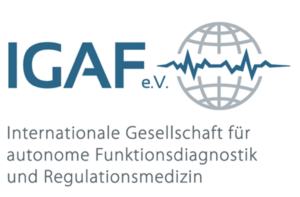Why IGAF?
The current risk factor model does not take into account the complexity of highly developed biological systems, so that therapy does not focus on the underlying physiological regulatory mechanisms, with the consequence that the predictability of adverse events remains limited.
Many scientists say that a paradigm shift in medicine is urgently needed. The number of chronic diseases, allergies, autoimmune diseases, infertility, etc. has been rising dramatically for decades. The motor skills of children, as well as their autonomic nervous system, have been deteriorating for decades. The development of chronic diseases is closely linked to an imbalance in the autonomic nervous system.
Apart from autonomic function diagnostics, there is no other analytical procedure that indicates incipient illnesses at such an early stage. Autonomic functional diagnostics is therefore ideally suited to preventive medicine. Organic dysfunctions are usually preceded by a dysbalance of the autonomic nervous system. If the imbalance is detected at an early stage using autonomic function diagnostics, many incipient illnesses can be nipped in the bud and chronification prevented.
More and more universities and colleges are focusing on autonomic function diagnostics (e.g. the Autonomic Nervous System Working Group at Hanover Medical School) and more and more studies from all medical disciplines are showing the importance of the regulatory state of the autonomic nervous system for stress-related illnesses and for the development of chronic diseases<.
